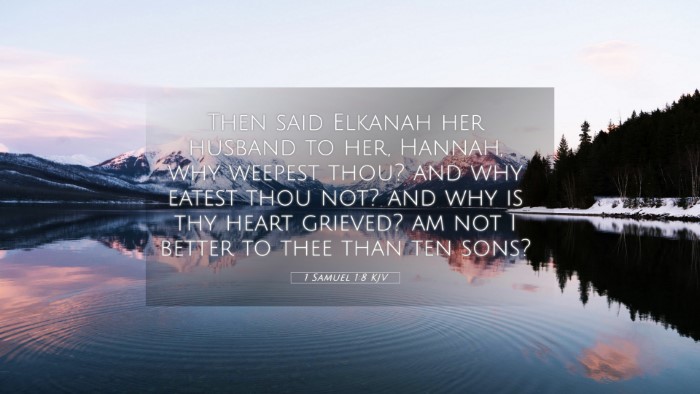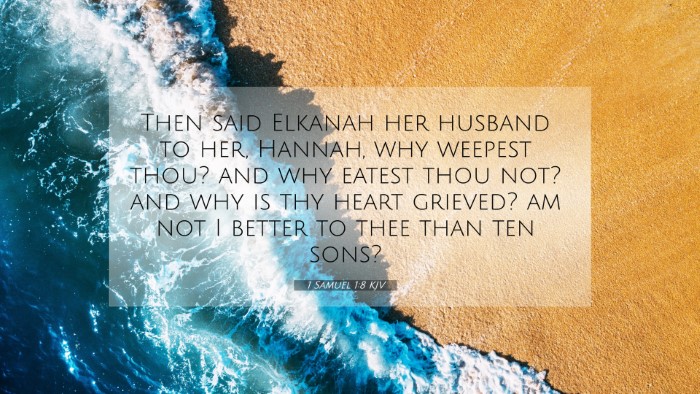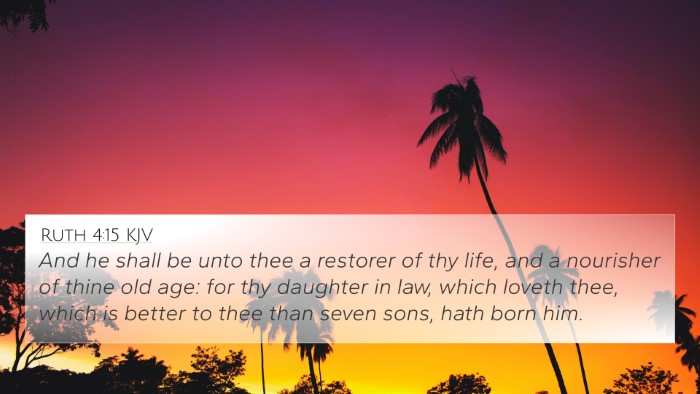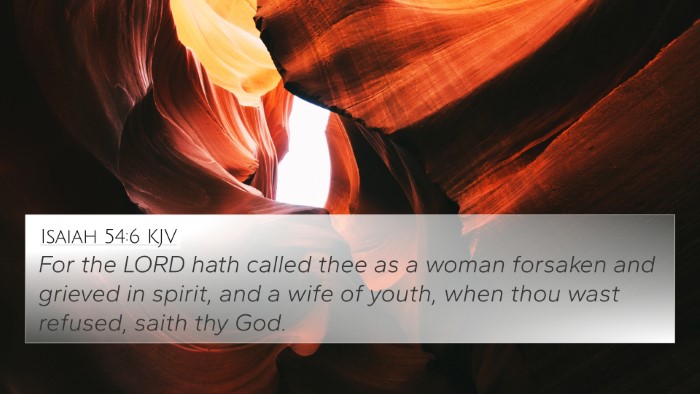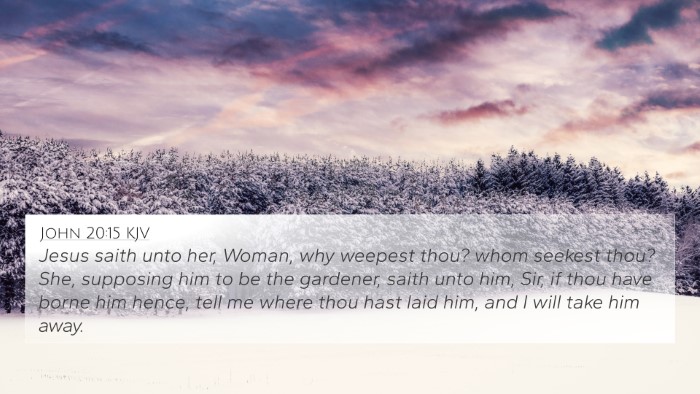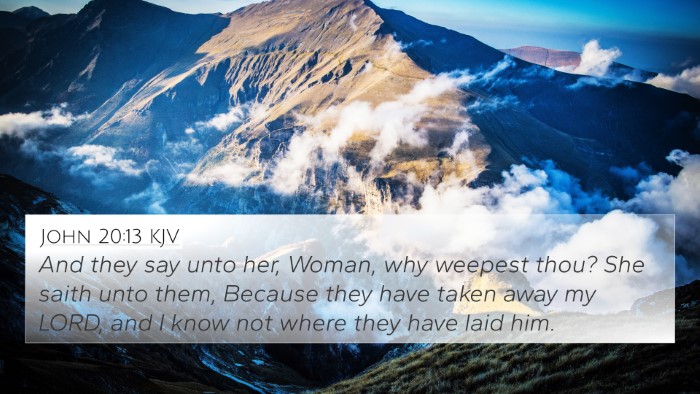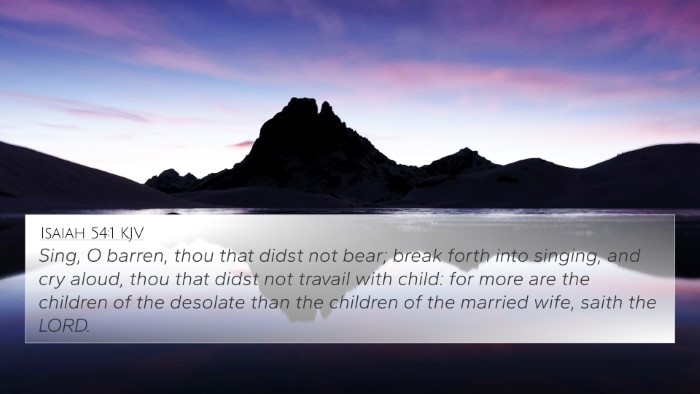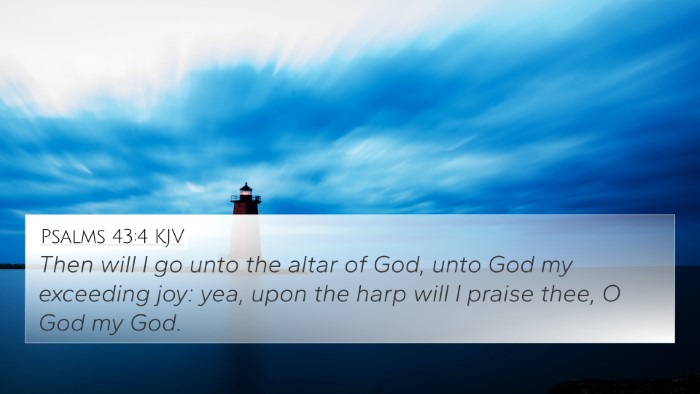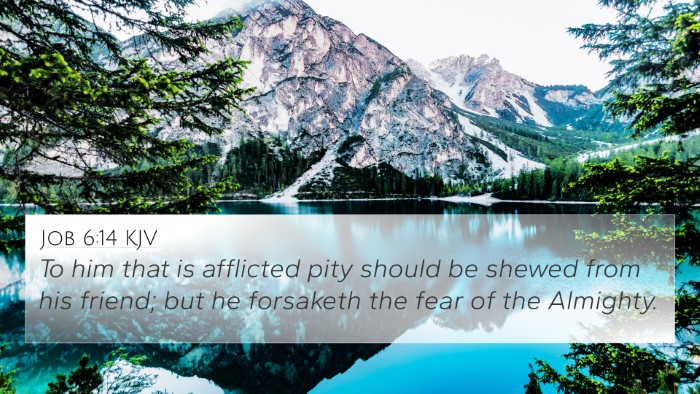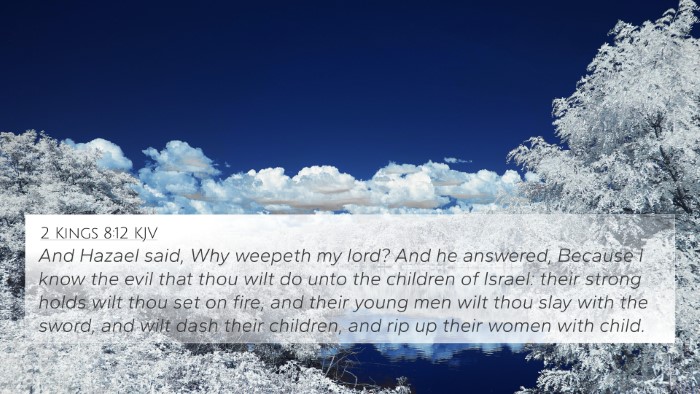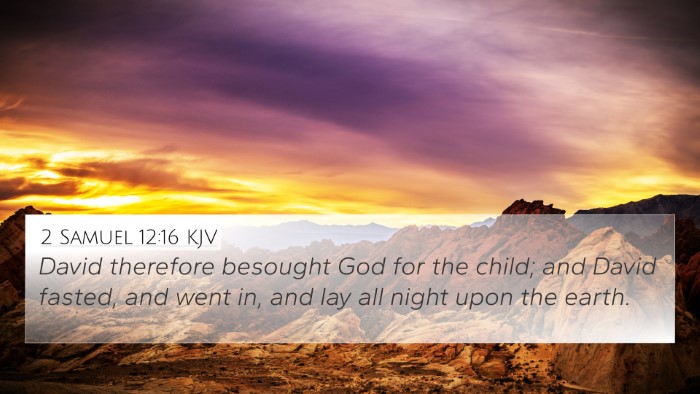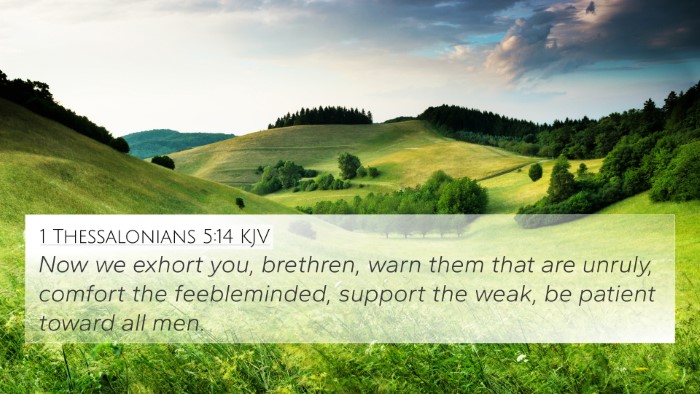Understanding 1 Samuel 1:8
1 Samuel 1:8 states: “Then Elkanah her husband said to her, ‘Hannah, why do you weep? And why do you not eat? And why is your heart grieved? Am I not better to you than ten sons?’” This verse encapsulates profound themes of love, sorrow, and the human condition, revealed through the dialogue between Elkanah and Hannah.
Contextual Background
This verse takes place in a period of great personal distress for Hannah, who is tormented by her inability to conceive a child. In ancient Israel, motherhood was highly valued, and the inability to bear children often brought feelings of shame and inadequacy. Elkanah, her husband, seeks to comfort her, but his reassurances reflect a potential misunderstanding of her deep pain.
Insights from Commentaries
- Matthew Henry: Henry emphasizes the emotional turmoil that Hannah endured and illustrates how her husband’s words, while well-intentioned, may not entirely address her grief. He notes that Elkanah's attempt to soothe Hannah reflects the limitations of human empathy in the face of deep sorrow.
- Albert Barnes: Barnes underlines the cultural significance of the family unit during this time. He discusses how Elkanah's question reveals his love and concern, but also highlights the disconnect between his understanding of Hannah's anguish and her desire for a child.
- Adam Clarke: Clarke offers a more nuanced view, considering the jealousy Hannah faced from Peninnah, Elkanah's other wife. This jealousy exacerbates her emotional state, and Elkanah’s attempt to comfort her shows his affection, yet falls short of recognizing her real source of pain.
Thematic Connections
This verse resonates with several broader biblical themes. It invites readers to explore the dynamics of interpersonal relationships, the search for identity within societal roles, and divine providence amidst human sorrow.
Hannah's situation reflects the struggles of many biblical figures who experience deep anguish yet are met with the presence of God eventually. Her story is a precursor to the eventual birth of Samuel, a significant figure in Israel's history, showing the transformative power of faith and perseverance.
Related Bible Verses
Several scripture passages resonate with the themes found in 1 Samuel 1:8, enriching our understanding through cross-referencing:
- Genesis 30:1-2: Rachel's jealousy over Leah's children mirrors Hannah's sorrow.
- Psalm 113:9: This verse speaks of God giving the barren woman a home, emphasizing His ability to change one's fate.
- 1 Samuel 2:21: The fulfillment of Hannah's prayer is highlighted when she eventually conceives Samuel.
- Luke 1:14-15: The story of Zechariah and Elizabeth offers parallels to Hannah's experience with barrenness and God’s intervention.
- Job 30:20: Job's lamentation reflects the feeling of abandonment that Hannah might resonate with.
- Isaiah 54:1: This verse encourages the barren woman to rejoice, linking back to the hope offered to Hannah.
- Hebrews 11:11: It mentions Sarah and her faith, which connects through the theme of miraculous births.
- John 15:13: The greater love shown by Christ can be paralleled with Elkanah’s love for Hannah.
- James 5:16: The power of prayer, as Hannah prayed fervently for a child, expands on the theme of divine response.
- Genesis 21:6-7: Sarah's laughter at the announcement of Isaac's birth links to Hannah's joy upon fulfilling her desires through faith.
Cross-Referencing Insights
Understanding such connections enriches one's scriptural knowledge, as it provides a deeper insight into biblical narratives and characters. Tools for Bible cross-referencing offer a method for investigating these interconnections more thoroughly.
Tools and Methods for Study
Utilizing a Bible concordance can aid in locating relevant passages and identifying thematic links between various scriptures, especially when studying figures like Hannah, who face trials and emerge through faith. Cross-reference guides are invaluable for establishing connections between both the Old and New Testaments.
Conclusion
1 Samuel 1:8 serves not only as a narrative moment of personal struggle but also as a rich theological ground for examining divine compassion and human resilience. The dialogue between Elkanah and Hannah opens discussions on emotional needs, relational dynamics, and God’s faithful presence in times of distress. Through comparative Bible verse analysis and inter-Biblical dialogue, we glean wisdom from scripture that is immensely applicable to our own lives.
Cross-referencing Biblical texts reveals the continuity of themes throughout scripture, showcasing how God’s companionship steers His people through sorrow toward hope and fulfillment.

